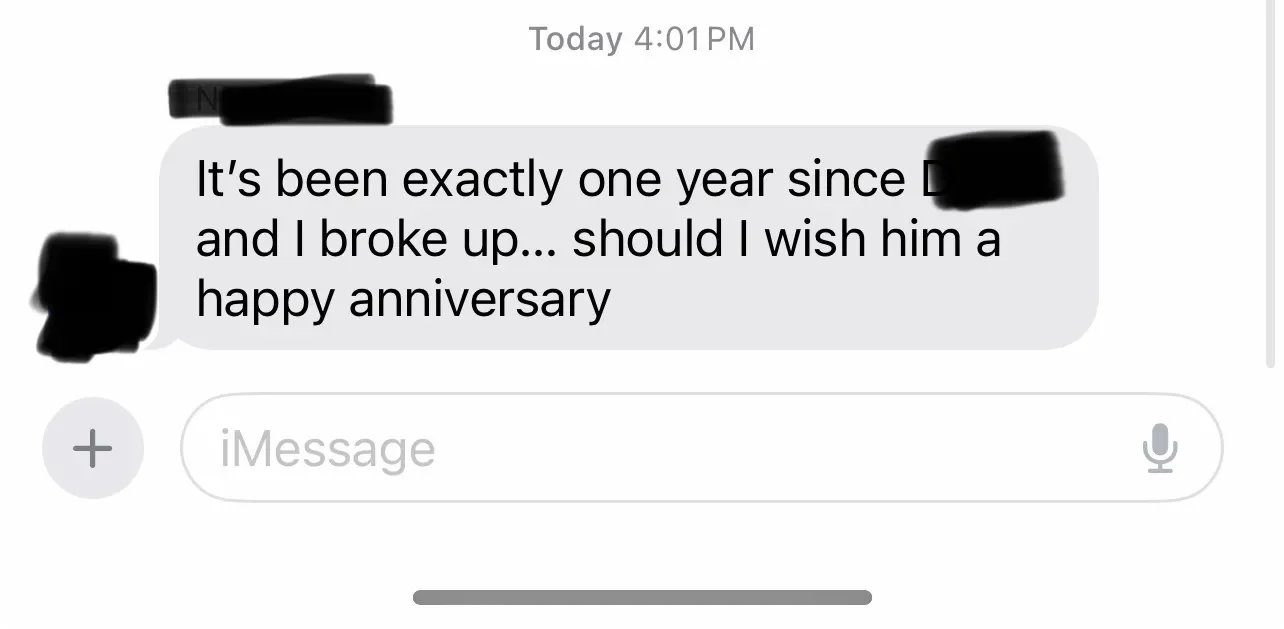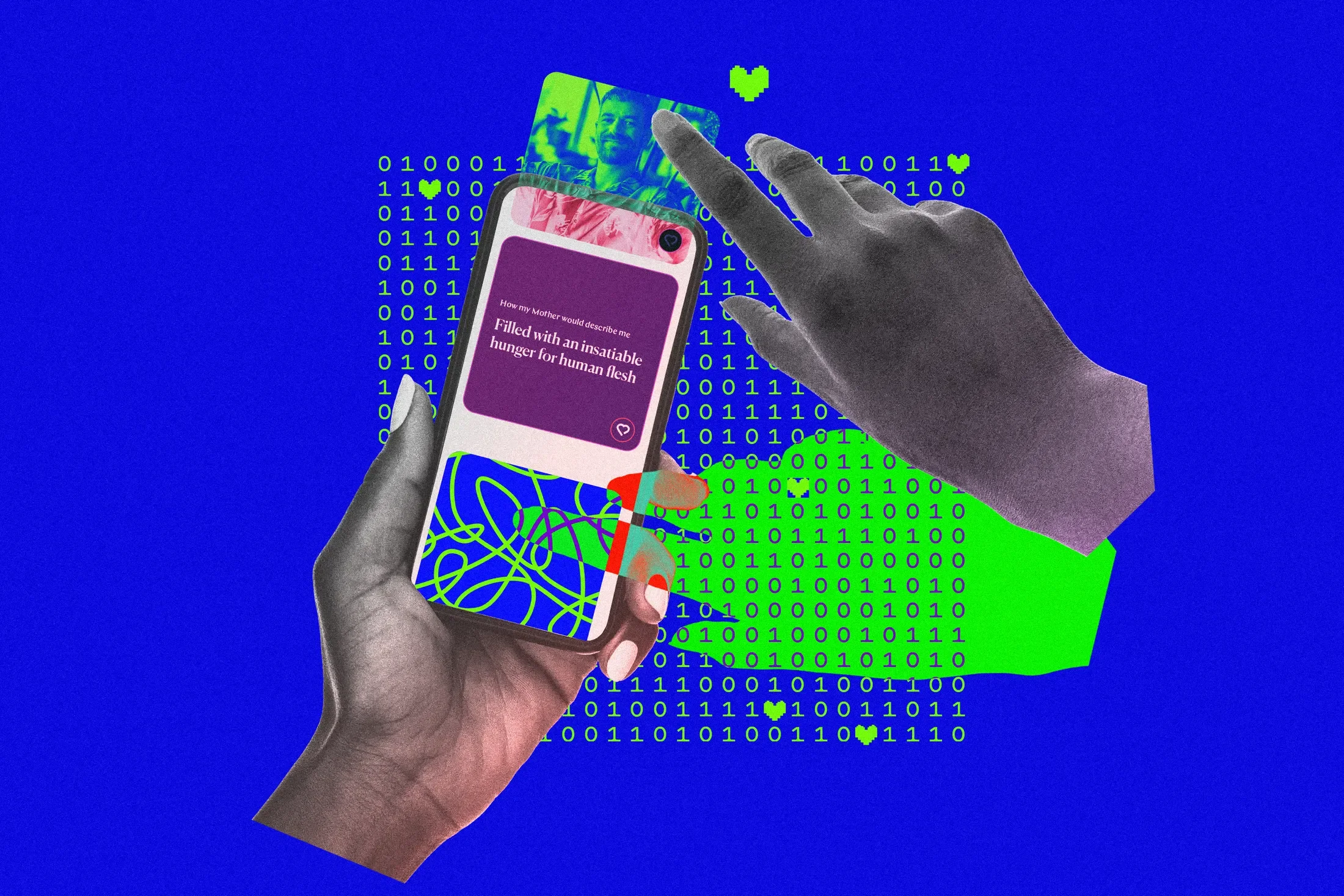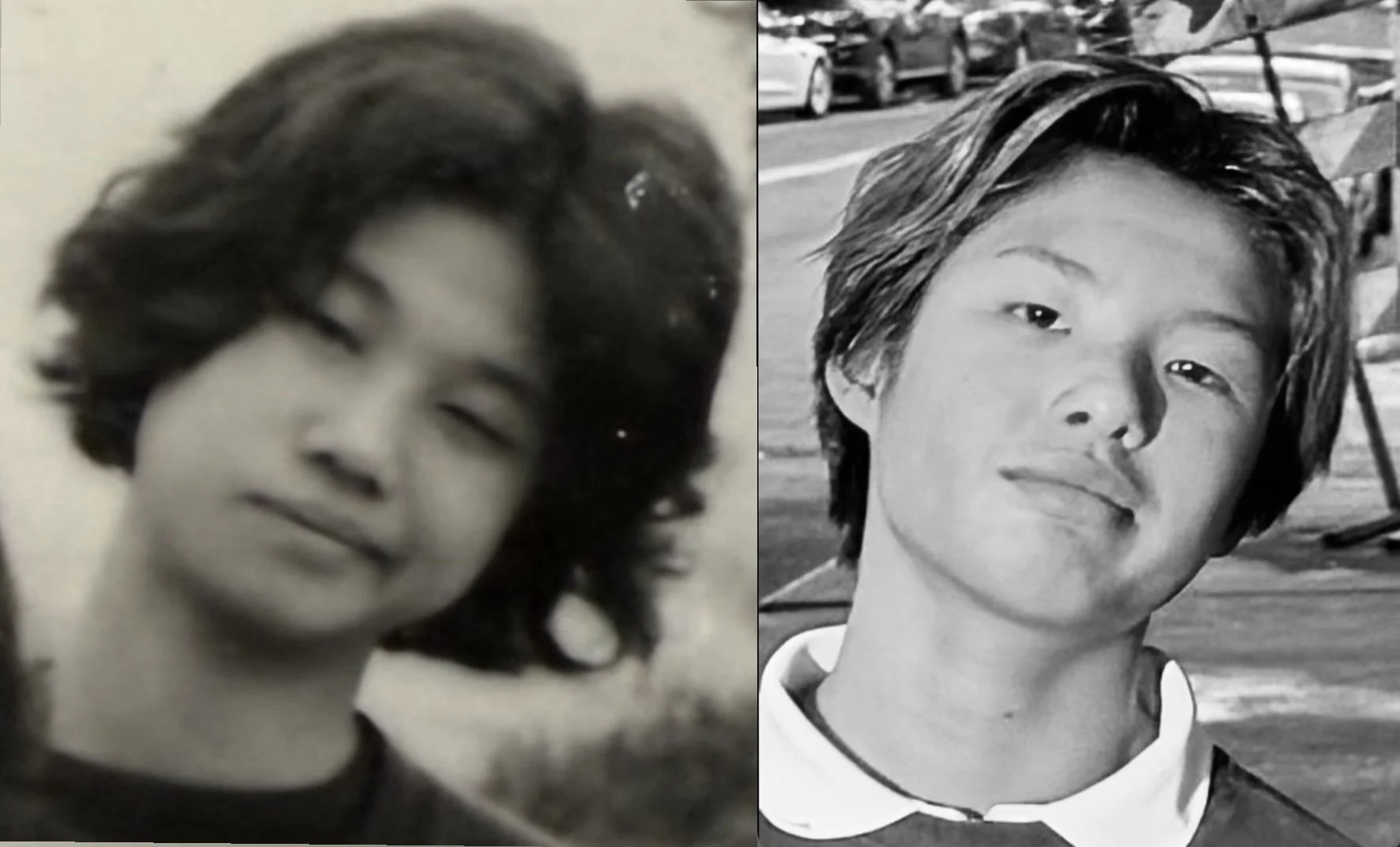Sex has always been weird. AI will make it weirder.
This issue was originally published on October 11, 2025 on Substack.
On Monday I attended “Sex, AI, and the future of human intimacy,” a lecture by Kaamna Bhojwani, a certified sexologist, researcher, and media personality. The venue, a mixed-use event space beneath Haight Street, had orange lighting and tattered sofas. I bought myself a $4 Spindrift at the bar and settled into a folding chair. Public upholstery is gross.
I bought a ticket thinking I could mine for future stories. Unfortunately, the only thing I wrote in my Notes app all night was “AI vibrators.” Bhojwani brushed up against a variety of topics—from internet-connected sex toys (“teledildonics”) and cyber brothels in Germany to AI companions and digisexuals, or people who use technology as their primary means of sexual expression. Remember the Japanese guy who married a hologram in 2018? He was ahead of his time.
She played us several lo-fi ads for sex tech products, like a busty humanoid robot with blonde hair and some type of Fleshlight. In the latter: a woman sits cross-legged on a bed. “Nope” says a male voice. The scene repeats with different women until he responds positively: “Oh yeah…” Cut to a cylindrical object with no explanation and fade to dark.
Bhojwani flashed screenshots of a conversation between her and her AI boyfriend. They had been sexting; I caught a glimpse of the word “clit.” I wondered if AI omits em dashes while dirty talking, then if the people who sext with bots are turned on by the now-blemished punctuation mark.
Impressively, the 45-minute lecture bypassed ethics and security to arrive promptly at human obsolescence. Futurists predict by 2045, 1 in 10 young adults will have had sex with a humanoid robot, Bhojwani told us. Then she asked, ‘So what’s going to happen to us?’
Nothing really, I thought. Which leads me to the question I didn’t ask but should have: Everything you showed us today exists, but so do furries, puppy play, and golden showers—all fringe fetishes I’ve seen up close thanks to the year I spectated at the Folsom Street Fair. Will any of this seep into the mainstream?
AI-powered dating apps will, definitely. It’s already happening. (Read about the Amata app below, then begin listening at 35:50 of this podcast episode to hear a woman’s firsthand experience.) But the rest?
After the presentation, I spoke to an attendee who called it “mid.” He was 35, worked in politics, and had moved to the city eight months ago. When I asked what dating has been like for him, he said women are materialistic and blamed the comparative nature of social media. He admitted to using AI to help write texts to women sometimes but did not appear to have a humanoid or tele-communicative vagina at home. He struck me as open-minded but cautious, much like myself. We were curious enough to listen, and skeptical enough to talk shit about it right after.
My friends are funny
In this FLD: A controversial Hinge hack, communal vs. exchange orientations, a new aspirational trope, and grandparents are getting paid to help out.
Have a story or topic I should look into? Write to me at: fendiliudufner@gmail.com 💌
〰️
Have a story or topic I should look into? Write to me at: fendiliudufner@gmail.com 💌 〰️
Photo-Illustration: The Cut; Photos: Getty
One Hinge hack says: Don’t give the app your preferences because it may use them against you. “If you are, say, a woman who is obsessed with her cat, you should absolutely not include anything about said cat in your profile, the idea here being that the more appealing your profile is to the widest amount of people, the hotter the Hinge algorithm will think you are and therefore will spit you out to the maximum amount of people,” said Eve Tilley-Coulson, a 37-year-old lawyer in LA. “I started realizing that every piece of information I gave Hinge, it then used it to keep those very people from me.” There’s also a rumor that when you X someone on Hinge, your profile almost immediately gets shown to them in their regular feed, meaning that rejecting someone could paradoxically end up increasing your chances with him or her.
Dating with a biological clock can be hard. Single women in their 30s and 40s may feel a sense of urgency to find a partner if they want children. This can cloud their judgement and lead to “panic partnerships,” according to experts. Egg freezing can help alleviate some fertility anxiety.
Don’t keep score in your relationship. Researchers distinguish between two mindsets: communal orientation and exchange orientation. People with a communal approach care for their partner with no expectations they’ll reciprocate, whereas exchange oriented people keep tabs and expect favors and effort in return. Multiple studies suggest that exchange-oriented people are less satisfied in their relationships. A transactional mindset is bad for romantic love. (And platonic relationships too. Studies found that Venmo requesting your friend the exact amount they owe you—to the cents—or requesting small payments, like $5 for a beer, makes you come across as cold or petty.)
“Slightly autistic” women may be the updated “manic pixie dream girl. I will be looking into this further. If you don’t know what the MPDG trope is, she is the quirky and free-spirited woman who helps the brooding, depressed man find joy in his life. She’s Zooey Dechanel’s character in 500 Days of summer and New Girl, or Natalie Portman’s character in Garden State. These are millennial references because I’m a millennial and MPDGs thrived in the 2000s.
I will be looking into this further. If you don’t know what the MPDG trope is, she is the quirky and free-spirited woman who helps the brooding, depressed man find joy in his life. She’s Zooey Dechanel’s character in 500 Days of summer and New Girl, or Natalie Portman’s character in Garden State. These are millennial references because I’m a millennial and MPDGs thrived in the 2000s.
Would you pay $16 for AI to plan your dates? Amata is a new dating app launching in the U.S., starting with New York City. Instead of swiping, users chat with an AI Matchmaker that finds suitors for them. Once matched, the users pay for a “token” and the app plans the date—from when and where to meet. Meta’s going in on AI dating too. Facebook Dating rolled out a new feature: a chatbot with a search function. Users can key in: “find a Brooklyn tech bro who would go to EDM concerts with me” and it’ll search based on public Facebook profile information.
The Cut published a decently comprehensive FAQ about wedding guest etiquette. It answers whether you’re truly wanted at the welcome event (yes) and if you can probe for a plus one (maybe) or bring drugs (also maybe).
Analogue romance is making a comeback and single people are dying to be set up. Lots of articles with this theme circulating. But not one has addressed the conundrum that coupled people tend to hang out with other couples, and meet even more couples. People in relationships aren’t cagey, they may simply not have anyone to introduce!
Gen Z’s having a hard time thinking for themselves amidst viral terms and theories. From golden retriever boyfriends to black cat girlfriends to ick lists, princess treatment, beige flags, box theory, red nail theory, orange peel theory, and MUCH more—young people don’t know what they want in a romantic partner. (I think this goes for anyone steeped into online culture.)
Adult children are paying their parents to care for their kids. I admit, I thought this was a western trend. I can’t fathom my Taiwanese family paying one another to care for a child. But joke’s on me because the writer reported this phenomenon from Singapore. I love this idea, actually. Mother, consider refreshing your resume.
Women who make more than their husbands find representation in Taylor Swift and Travis Kelce. I’m not sure Swift, a billionaire, had much of a choice. Some interesting stats: “The share of women in heterosexual marriages who significantly outearn their husbands has climbed from 3% in the early 1970s to 10%, according to a 2023 study by Pew Research Center, while women who are the sole breadwinners in their households has gone from 2% to 6%.”
Women say they need a girls’ night every 22 days to feel balanced. The survey of “2,000 women 21+ who drink wine and go to girls’ nights” was commissioned by Bezel Wines—a brand from Cakebread Cellars, the very wine you’d bring to a girls’ night in your twenties—but who’s to say there’s a conflict of interest?
On a personal note: Check this side-by-side of my grandma in the ‘50s and my 13-year-old cousin. Both REEKING of cool kid energy, but I’m biased.





